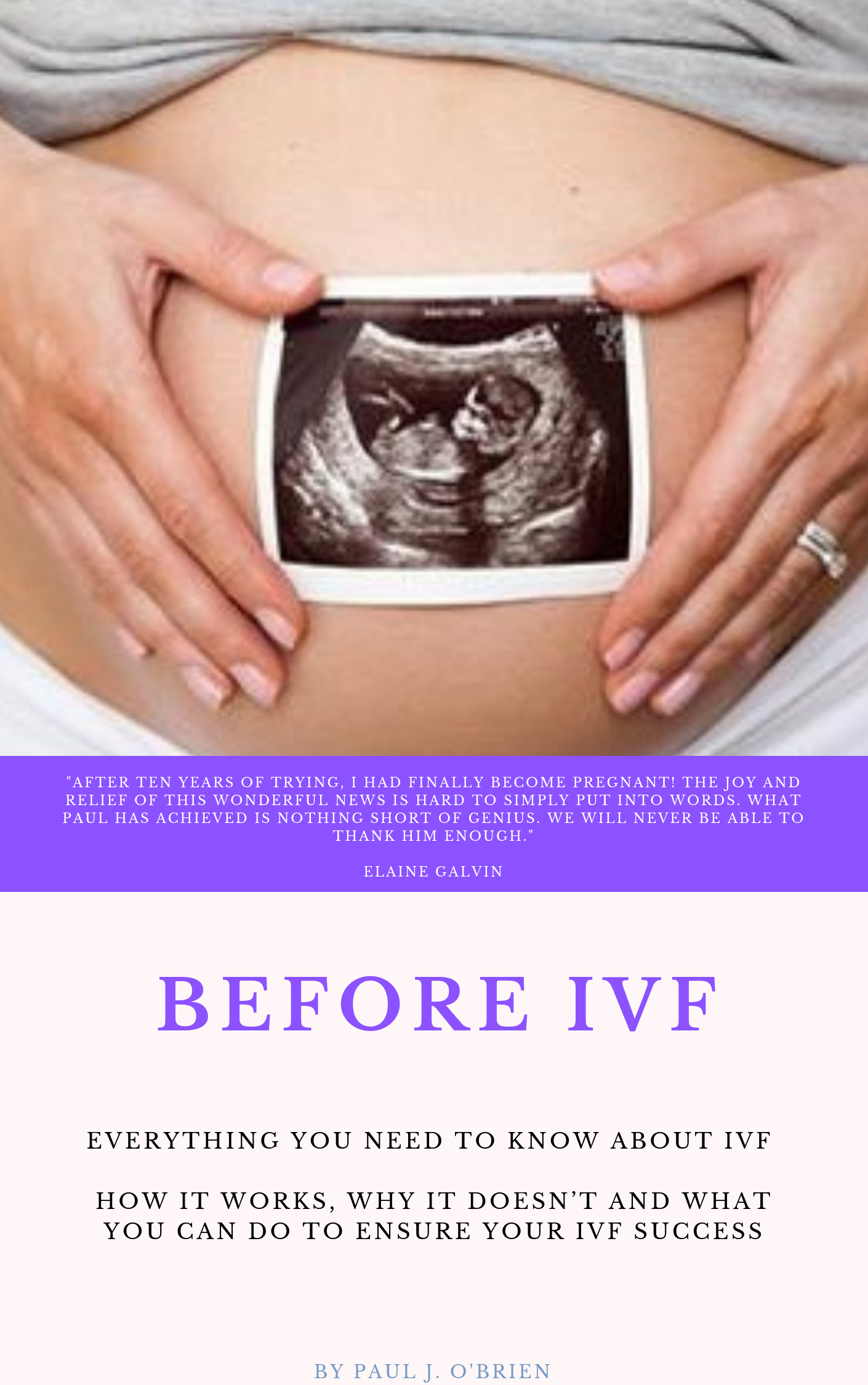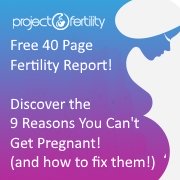Hyperprolactinemia Causes and Treatment
By Paul J.O'Brien B.A., N.C.E.H.S., Dip. Acu., Adv. Dip. OBB, Cert Clin. Med, Cert.CHM, Pn1, PN-SSR, PN-NCA, M.AFPA, M.ETCMA, M.C.Th.A.
Hyperprolactinemia Causes and Treatment, a guide to understanding a common fertility problem. In this article I'll explain the meaning of hyperprolactinemia, what hyperprolactinemia causes may include, what hyperprolactinemia lab test may be performed and of course my hyperprolactinemia treatment guidelines. Most importantly, I want you to know from the top - this can be fixed, naturally.
What Does Hyperprolactinemia Mean?
Hyperprolactinemia is a condition wherein the body overproduces prolactin, the hormone necessary to make breast milk. When prolactin levels are high the body is preparing the breasts to produce milk, and thus the body assumes a baby is present. No need for another one right now, so high levels of prolactin sees the body prevent the ovaries from releasing a new egg.
This is why many suggest that you cannot get pregnant during breastfeeding. But that's not true. Prolactin levels fluctuate and as such one can, and many a woman can get pregnant while breastfeeding. I remarked on this during my pre-marriage course.
In Ireland, before one can get married in Catholic Church you need to attend this course. During the talk it came time to discuss contraception and, amusingly, a priest was advising that a woman cannot get pregnant during breastfeeding. As a medical professional and expert in reproductive medicine I felt compelled to interject and explain that as not the case. Then a had raised from the rear of the room. It belonged to a young woman, nursing a cute baby and who was clearly several months pregnant. The room exploded in laughter.
Hyperprolactinemia Causes
And while that was amusing, and one can conceive with elevated prolactin levels, there are other causes for concern, particularly if they are elevated without the cause of pregnancy. While Hyperprolactinemia causes the body to overproduce prolactin, often times in western medicine they look to examine the pituitary gland, where a growth or tumour can lead to Hyperprolactinemia, as can certain drugs for blood pressure or tranquillisers. In addition, while an egg may be released and even fertilized, elevated prolactin can interfere with other hormones such as the corpus luteum which leads to a shortfall of progesterone, needed to hold and grip on to a developing pregnancy.
Thankfully there is a method of naturally treating hyperprolactinemia, used in my clinic that has been shown to be over twice as effective as western medication in enabling a woman to conceive.
 Hyperprolactinemia
HyperprolactinemiaHyperprolactinemia Lab Test
There are two main hyperprolactinemia lab tests that can be administered, which help to discover the underlying hyperprolactinemia causes. The first hyperprolactinemia lab test I want to talk about is Progesterone...
Check Your Progesterone!
Progesterone is a hormone naturally produced in the female body from both the ovaries and adrenal glands. As women age, hormone levels tend to decrease, progesterone is one of those hormones.
Just after ovulation progesterone production increases and should remain high, peaking during the luteal phase of the menstrual cycle. As such the timing for the test should be 7 days before the expected start of the period.
As such this is often referred to as a Day 21 test. This assumes a woman has a 28 day cycle. She may not. And the timing of the test should be adjusted for her cycle. If a woman regularly has a 32 day cycle, then the test should be taken on Day 25.
A serum progesterone level of 3ng/ml (9.53 nmol/L) or above indicates ovulation has occurred.
If it is below that number it indicates ovulation has not happened. However, in my clinic I prefer levels of 10 ng/mL (31.8 nmol/L) or greater, as this shows stronger luteal function and better implantation rates.
If this low then next step is to investigate Thyroid problems and hyperprolactinemia as both can cause anovulation (no ovulation occurring). This is done with a TSH test (I’ll discuss this in dealing with thyroid tests in a later article) or Prolactin Levels, which is the second hyperprolactinemia lab test I want to discuss.
Check Your Prolactin!
Prolactin as I mentioned earlier, is the hormone necessary to make breast milk. When prolactin levels are high, as hyperprolactinemia causes, the body is preparing the breasts to produce milk, and thus the body assumes a baby is present. No need for another one right now, so high levels of prolactin sees the body prevent the ovaries from releasing a new egg.
The hyperprolactinemia lab test for prolactin can be carried out at any day of the cycle. The levels for this result vary in tolerance from clinic to clinic and there is no standard agreement. However, in my clinic 3.35ug/L (71 mIU/L) - 16.4 ug/L (348 mIU/L) is the range I go by.
Even mildly elevated levels is a causes for concern, particularly if they are elevated without the cause of pregnancy. If this is the case I recommend an MRI. Often times in western medicine they look to examine the pituitary gland, where a growth or tumour can cause Hyperprolactinemia, as can certain drugs for blood pressure or tranquillisers. In addition, while an egg may be released and even fertilized, elevated prolactin can interfere with other hormones such as the corpus luteum which leads to a shortfall of progesterone, needed to hold and grip on to a developing pregnancy.
Hyperprolactinemia Treatment Guidelines
My hyperprolactinemia treatment guidelines begin with making an independent Traditional Chinese Medicine (TCM) diagnosis. So what is hyperprolactinemia in TCM terms? A Condition called Liver Qi Stagnation. Now I know that might sound odd but it essentially means the movement of blood in and out of the liver is slow or stagnant.
This pattern drastically impairs our reproductive health as it affects the blood needed for the nourishment of the follicles leading to healthy eggs (and lead to small size eggs), insufficient blood for implantation, painful periods with dark coloured and often clotted blood. In addition it can lead to elevated levels of prolactin (which hyperprolactinemia causes) which inhibits ovulation and can cause breast tenderness and a shortfall of progesterone leading to an inability to maintain pregnancy.
Severe PMT and headaches can also be a symptom as can increase depression and mood swings. Finally this pattern is also very much associated with Immunological Infertility where in an increase in Natural Killer (NK) Cells can lead to early stage miscarriage.
This pattern is incredibly common and pervasive among with the patients I have seen, and successfully treated and that treatment is simple but very comprehensive. I teach my patients techniques to balance out their hormones and reduce cortisol, to restore the proper unimpeded flow of blood; centuries old nutritional secrets that course and purge the Liver (like applesauce and cinnamon), smooth it's function and let blood flow correctly, to nourish and grow strong mature and high quality eggs, eliminate pain and clotting in the period, reduce Prolactin which hyperprolactinemia causes, encourage ovulation and the development of progesterone.
I also share with them powerful stress reduction techniques, so powerful they can bring a high stressed combat soldier in the middle of a war zone down to place of calm within 12 minutes. I also teach them how to adopt and totally different mindset when it comes to fertility and reproduction, one that eliminates frustration and teaches you to befriend your fertility.
And I'd like to share one simple formula with you now...
Herbs for Hyperprolactinemia
A great herbal formula to alleviate the underlying Hyperprolactinemia causes that may be present is called Xiao Yao San. Here is how you make it and what it does.
- Chai Hu - 3g, relieves Liver Qi Stagnation, pacifies the Liver, relieves the Shao Yang and reduces fever.
- Dang Gui - 3g, strengthens, invigorates and harmonizes the Blood, regulates the menses, disperses Cold and stops pain due to Blood Stasis.
- Bai Shao - 3g, nourishes the Blood, regulates menstruation, softens the Liver and relieves pain.
- Bai Zhu - 3g, strengthens the Spleen and tonifies Qi.
- Fu Ling - 3g, strengthens the Spleen and drains Dampness.
- Zhi Gan Cao - 1.5g, tonifies Spleen Qi, stops pain and harmonizes the other herbs.
- Bo He - 3g, relieves Liver Qi Stagnation, disperses stagnant Heat and enhances Chai Hu's ability to relieve the Liver.
- Sheng Jiang - 2g, harmonizes, prevents rebellious Qi and normalizes the flow of Qi at the center.
Your Best Next Step with Hyperprolactinemia
If you’re trying for a family, have been diagnosed with hyperprolactinemia, or are planning on going through IVF, ICSI IUI, or have been through failed rounds, from poor egg growth, fertilization failure, sperm quality issues, miscarriage etc, and want to give this round the best possible shot of success and dramatically improve your fertility and reproductive health, to have a happy healthy baby, then …
- Download my Free "9 Reasons You Can't Get Pregnant" Guide to learn more about what complications may be present and what you can do to fix them!
- Subscribe to my newsletter to keep up to date with the new articles, how to guides, fertility recipes and more.
- Get Your Copy of "Before IVF: How it works, why it doesn’t and what you can do to Ensure Your IVF Success!". Over 430 pages, this guide provides answers to every question you could ask about fertility and how to maximise your reproductive health. It will help you beat the numbers in IVF and better still may help you conceive without ever having to go through IVF! THIS INCLUDES A COMPLETE TREATMENT PLAN FOR HYPERPROLACTINEMIA!!!
- Contact me with your particular questions and concerns and I'll do my best to help. :-)



New! Comments
Have your say about what you just read! Leave me a comment in the box below.